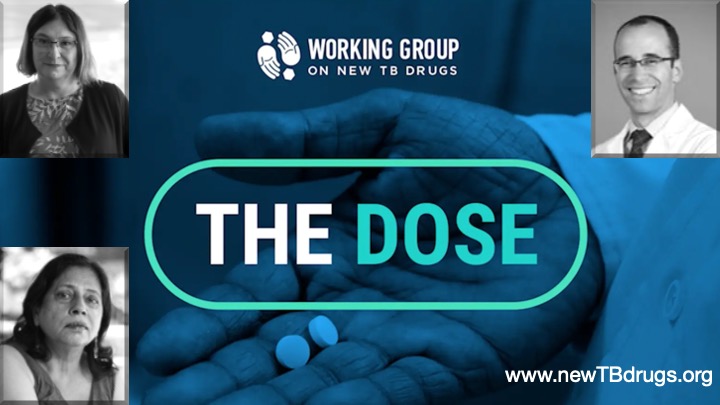BOBBY RAMAKANT - CNS

Latest episode (5th) of The Dose Podcast premiered on 2022 World TB Day worldwide
(Image by CNS) Details DMCA
Undoubtedly, among the most important scientific breakthroughs for the diagnosis and treatment of drug-resistant tuberculosis (TB) have happened in the past few years. But are we able to convert the scientific breakthroughs into public-health gains quickly enough - by diagnosing every person with drug-resistant TB, and treating them with safe and effective medicines?
Science has proven that it is possible to reduce the duration of treatment of highly drug-resistant forms of TB from around 2 years to 6 months, reduce toxicity of the medicines, and significantly improve treatment outcomes. A big challenge indeed is to translate these scientific advancements into public health gains. Clock is ticking!
Know more on drug resistance
"Antimicrobial resistance, also known as drug resistance, makes an infectious agent (such as TB-causing bacteria) resistant to medicines. So, when TB bacteria becomes resistant to a medicine, then it cannot be killed by it. That is why, we need a different combination of medicines (to which bacteria is sensitive to) to treat the disease. Choice of medicines left to treat is limited, treatment is longer, risk of severe illness and dying is higher, and host of issues such as, drug toxicity, side effects, and sometimes post-treatment disabilities, are other challenges. But there is good news too - thanks to rigorous scientific research, we have shorter, safer, and more effective therapies for treating drug-resistant TB now. We need to ensure that standard and best possible treatment options reach everyone in need without any delay. No excuse for inaction," said Shobha Shukla, founder Executive Director of CNS who was moderating The Dose Podcast.
The Dose Podcast
The latest episode of The Dose Podcast, which premiered on 2022 World TB Day (launched by the Working Group of New TB Drugs of Stop TB Partnership), featured two TB science leaders who have been instrumental in advancing scientific research for highly drug-resistant TB.
"Highly drug-resistant TB as it was referred to in the Nix-TB and ZeNix scientific studies, was the combination of either XDR-TB or pre-XDR-TB (using the pre-2021 definitions) or MDR-TB with treatment intolerance or non-responsive MDR-TB," said Dr Gustavo Velasquez, Assistant Professor in the Division of HIV Infectious Diseases and Global Medicine at University of California.
Next Page 1 | 2 | 3 | 4 | 5 | 6
(Note: You can view every article as one long page if you sign up as an Advocate Member, or higher).





